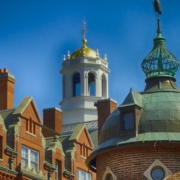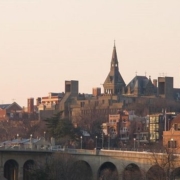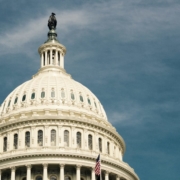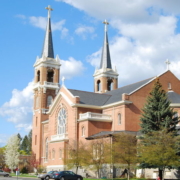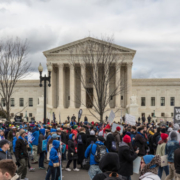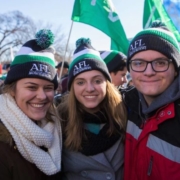Catholics Should Be Wary of ‘Elite’ Colleges
Lately we’ve been hearing about a college admissions scandal and FBI raids of parents’ homes. But Catholic families may be being cheated by an even bigger fraud.
The news is abuzz about indicted celebrities who abused the power of their wealth to get children into prestigious colleges, ahead of deserving students. It’s a classic American scandal, pitting the wealthy against the little guy.
But there’s more to it than that. “If education is what the beast says it is, a mere means to the end of greater wealth and prestige, then what these parents did makes perfect sense,” writes scholar Benjamin Myers at First Things. “…Many of those outraged by the behavior of these celebrity parents share the foundational assumptions that make sense of such actions—that the point of education is not to ‘get wisdom,’ in the words of Proverbs, but to gain prestige. The parents who bribed their kids’ way into college were just feeding the beast, the same as everybody else.”
In other words, Catholic families who aspire for their children to attend college to obtain a ticket to success instead of forming their minds, hearts and spirits are missing the point of college—at least what the Church deems worthy of young Catholic students.
More than the bribery scandal, the greater fraud in American academia is the pretense that “elite” colleges still have the value they had just a lifetime ago, let alone the value that the great universities had centuries ago. For many big-name universities today, their reputations were built in another time and on another sort of education.
Modern secular education
To be sure, elite universities offer many advantages to their students. They are able to hire brilliant professors, sometimes including prominent Catholics like Robert George at Princeton and Mary Ann Glendon at Harvard. They often have vast resources for research, facilities, libraries, etc. And a diploma from an elite institution can be a ticket to wealth, success and distinction.
These are valuable in their own right, and there are many factors in choosing a college that may lead a student to attend a secular institution—or worse, a corrupted and highly secularized Catholic institution. But Catholics need to be aware and highly cautious about the rest of the baggage that comes with most of modern higher education—especially our “prestigious” universities.
Today many are dominated by identity politics and political correctness, instead of rational dialogue and reasoned argument. Studies tend to be either career-centered, with an emphasis on practical training, or narrow and biased distortions of the liberal arts. The campus life is morally toxic and frequently corrupts the souls of students.
Most important, they lack Christianity. In our secular age, it’s understandable that most students don’t value the insights of Christianity on science, history, the arts and humanity. But Catholic families should value them above all.
Newman’s vision
Blessed John Henry Newman, the 19th-century theologian and educator who will be canonized later this year, argued rightly that the only complete college is a faithfully Catholic one. That’s because higher education should be open to all truth and committed to integrating all truth—thus the word “university.”
At a faithfully Catholic college, the knowledge that is revealed to us by Christ and His Church rightly informs every other branch of study, makes it richer, and opens our eyes to greater understanding. A college that rejects and excludes Christian truth is a lesser college.
Higher education should not be focused primarily on accumulating facts and skills, although that’s the emphasis of most college learning today. Newman said he didn’t care much what subjects a student studied, as long as he learned to reason well, organized and prioritized knowledge, solved problems, and acquired wisdom.
And a higher education is not just about academics—it’s about forming young people to fulfill everything that God desires for them, to become more fully human. A faithful Catholic college like those recommended in The Newman Guide teach not only wisdom but also virtue, and they form students in the Faith and the Sacraments. They attend to campus life outside the classroom and lead students on the path to holiness. This is not contrary to learning, but central to it.
Sadly, many of the elite Catholic colleges like those involved in the admissions scandals—Georgetown University and the University of San Diego—have moved away from this sort of valuable education, even while resting their reputations on the excellent education that they once provided.
Even the Ivy League institutions once understood the value of a faithful, integrated education. Did you know that most Ivy League universities began as Christian institutions? For decades now, they have compromised their original mission, yet they retain their prestige in the eyes of the world.
A faithful Catholic college… now that’s an education worth reaching for! But don’t try bribing admissions officials to get in.
This article was originally published at the National Catholic Register.

